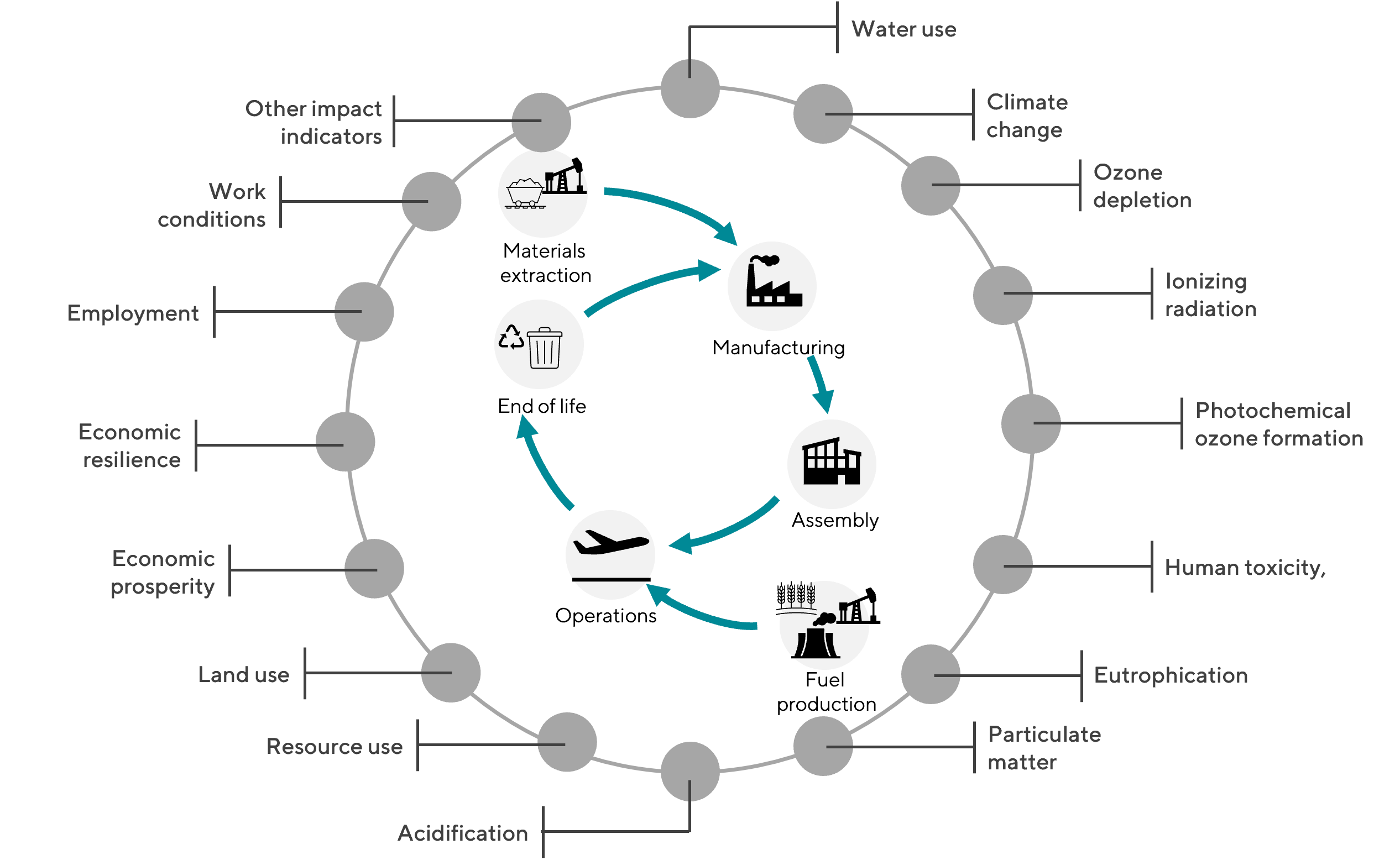
ISA-LABELLED THESIS: LAETITIA BORNES HAS DEVELOPED A PROTOTYPE MODELLING TOOL
Laetitia Bornes’ thesis, awarded the ISA label in 2023, delves into a systemic approach aimed at integrating rebound effects into interactive system design.
Félix will develop Life Cycle Assessment approaches and integrate them with ISA’s modeling tools to enable systemic exploration of the impacts of tomorrow’s air transport. This approach, extended to a range of environmental indicators, is essential to avoid transferring the climate externality to other externalities, such as mineral resource depletion and land-use change.
Felix’s work will cover different levels of granularity, from the evaluation of new aircraft concepts to their deployment in a global fleet. It will contribute to integrating the concept of absolute sustainability, for the evaluation of aviation transition trajectories, within the AeroMAPS platform supported by ISAE-SUPAERO and the Institute for Sustainable Aviation. Finally, Félix will be undertaking methodological work on the integration of socio-economic indicators into the sector’s life-cycle analysis approaches.

l

Laetitia Bornes’ thesis, awarded the ISA label in 2023, delves into a systemic approach aimed at integrating rebound effects into interactive system design.

When unforeseen events like new policies or emerging competitors disrupt the airline industry, the race to adapt and secure new market shares intensifies.

Zoom in on Vincent Jacquot, one of the 8 PhD students whose theses have been ISA-labelled in 2023.
By continuing to browse this site, you are agreeing to the use of cookies for statistical purposes, as well as to facilitate information sharing on social networks. For more information, you can consult our Cookie policy.